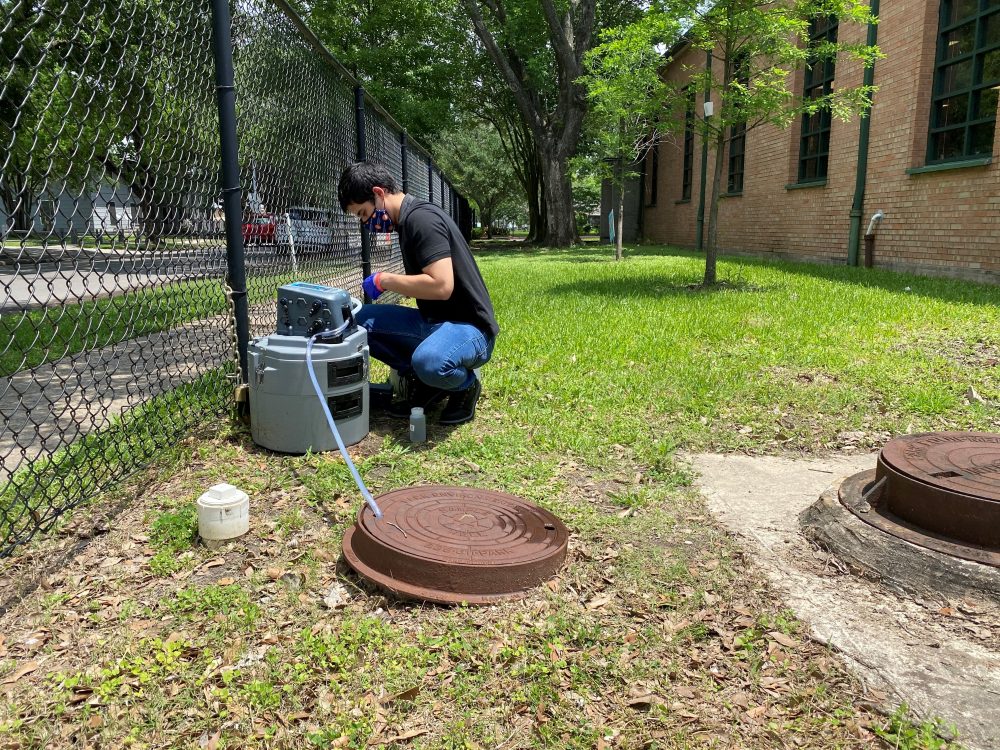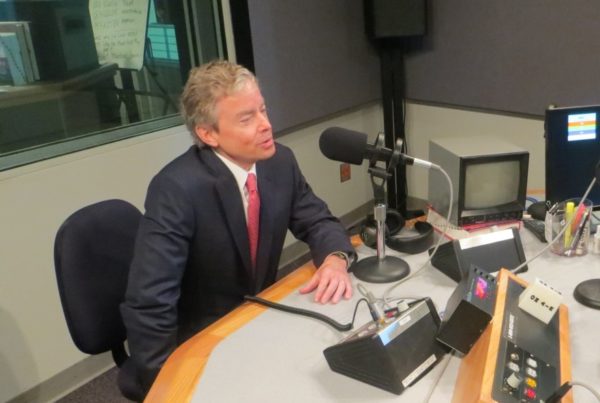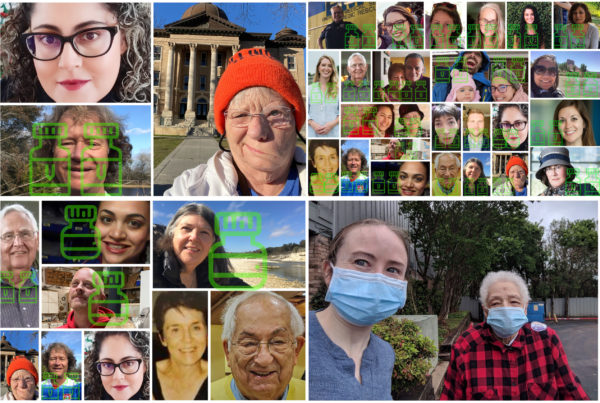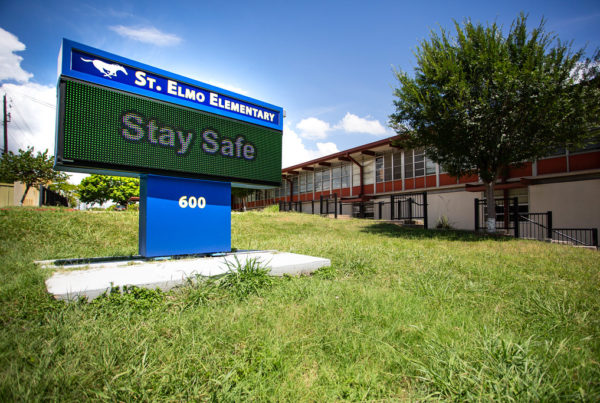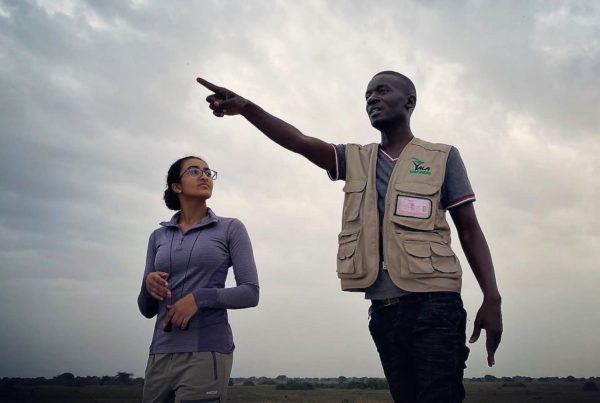Once a week, Braulio Garcia, an environmental investigator with the city’s Health Department, goes to Crespo Elementary School to take sewage samples from a manhole.
“It can smell pretty gross sometimes,” he said. “It kind of depends on the day.”
Smelly or not, the sewage has been providing valuable information to the city in its fight to control the coronavirus. That’s because infected people, whether symptomatic or not, shed the COVID-19 virus in their poop.
And that research has helped identify the spread of COVID-19 variants across the region.
The Houston Health Department can now monitor the concentration of the virus in the wastewater to help determine if cases are rising. They’re working with researchers at Rice University and Baylor College of Medicine for the analysis.
“It serves as a way of kind of testing everyone without having to test everyone,” said Garcia. “Being able to isolate specific schools, it’s pretty interesting because we can see just at this specific location if there might be an outbreak.”
Garcia is part of a team that takes weekly sewage samples from more than 50 schools across the city. But it’s not just schools. The Health Department is also taking samples at nursing homes, the jail and other congregate living facilities.
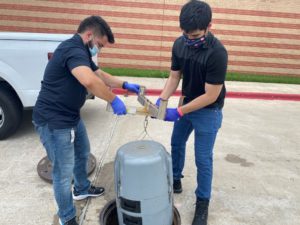
Houston health workers lift a sampling device back into a manhole where it collects sewage samples from Crespo Elementary School.
Zeroing in on specific buildings represents a big change from when the sewage surveillance initiative first began. And given the program’s overall success so far, many would like to see it extend beyond the pandemic to offer public health guidance in fighting other diseases.
When the initiative first started, the health department was taking samples from the city’s 39 wastewater treatment plants. Those samples are still an integral part of the program, according to Loren Hopkins, the chief environmental science officer for the Health Department.
“The most important thing I think that the wastewater gives us is this unbiased estimate. We’re not relying on people to voluntarily go to a testing site,” she said. “It’s something that we can constantly be doing to take the temperature of the city.”
When paired with clinical data, it helps the health department decide which ZIP codes to target for additional outreach. The department sends in a strike team, which partners with community organizations, to increase testing, vaccines and education, among other things.
And as more people get vaccinated, the wastewater data may become even more important for understanding the caseload in the city as fewer people get tested, Hopkins said.
“For us to have a reliable measure of what the city is feeling in terms of how many people have the virus, we may be relying more and more on the wastewater,” she said.
The researchers can also use the wastewater to detect variants, which they did back in February with the UK variant.
“We saw it go from barely detectable in all the wastewater treatment plants to now it’s become the dominant variant in the wastewater,” said Lauren Stadler, an associate professor of civil and environmental engineering at Rice. “To see it sweep over the city at such a high rate through the wastewater data was really convincing to me that this is a useful approach for tracking specific variants of concern.”
She said now more than 80% of the virus they detect is the UK variant. Moving forward, Stadler thinks wastewater testing, along with clinical data, could help indicate if the vaccines are less effective against certain variants.
“I think in this next phase of the pandemic, it’s going to be increasingly important, not just for helping direct resources associated with vaccination, but also for this variant question,” Stadler said. “If we’re able to use the wastewater to basically monitor for the emergence of these specific variants that are maybe less effective against vaccines, it might help.”
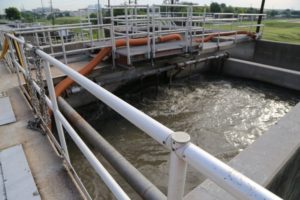
One of Houston’s 39 wastewater treatment plants.
Courtesy of Houston Public Works
Both Stadler and Hopkins also see potential for “wastewater epidemiology” to continue beyond the pandemic.
“It turns out, we excrete like a whole bunch of viruses and bacteria in our feces and urine,” said Stadler.
Things like the flu, opioid use and even antibiotic-resistant bacteria can all be monitored in our wastewater. In fact, prior to the pandemic, Stadler’s team was studying the presence of antibiotic-resistant bacteria in wastewater.
Though Rice and Baylor have been providing support to the Health Department during the research phase of the initiative, the aim is for the city to have its own wastewater testing lab.
“The Health Department isn’t in the research realm, but we’re beyond research now,” said Hopkins, with the Health Department. “Now that the experts in the research realm have figured out exactly what to do and have the process down, they’re supporting the Houston Health Department laboratory in being able to do the analysis for the city.”


